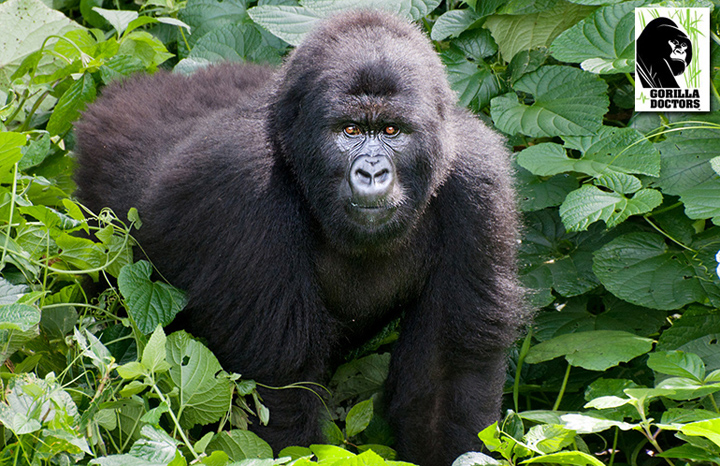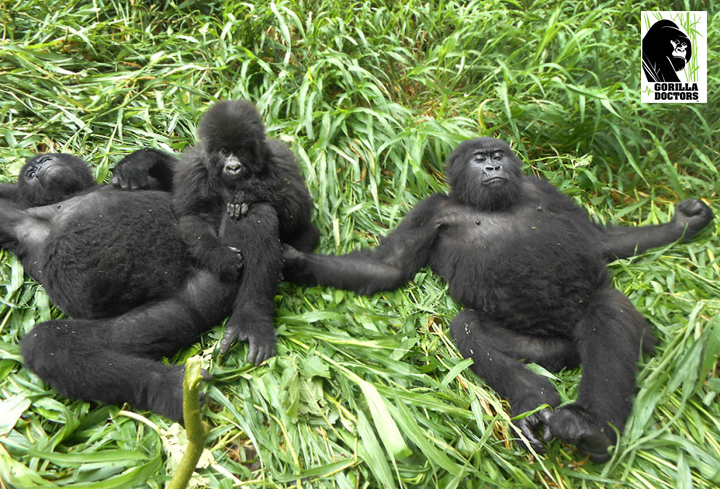Orphan Mountain Gorilla Maisha Passes Away at Senkwekwe Center
By Gorilla Doctors Staff on Monday, July 24th, 2017 in Blog.The Gorilla Doctors family is heartbroken to report the loss of orphan mountain gorilla Maisha at Virunga National Park’s Senkwekwe Center. Maisha was the oldest of four mountain gorilla orphans that lived at the Senkwekwe Center.
“We worked very closely with the caregivers at the Senkwekwe Center to try and get Maisha well” said Gorilla Doctors director Dr. Mike Cranfield. “Unfortunately, after bringing in experts, we could not come up with a conclusive diagnosis and after a very long illness, her health issues got the better of her and we lost her. A full post mortem is being carried out, to help with future medical care and treatment of gorillas.”
Maisha was born in 2001 in Virunga National Park during a time of serious conflict in the region. During this time of unrest, rebels used the park as a hideout and the forest was being cleared by farmers at an alarming rate. In December 2004, 3-year-old Maisha was poached from the park and brought to a cave in Rwanda where she was kept tied up inside a sack for two weeks and fed only corn and sugarcane. After hearing rumors about the infant, Volcanoes National Park staff and the Rwandan police organized a sting operation: on December 18 they confiscated Maisha from the poachers, and she was turned over to Gorilla Doctors for treatment. Upon arrival she was thin and her nutritional status was very poor.
In collaboration with staff from the Dian Fossey Gorilla Fund International’s Karisoke Research Center and caretakers from Volcanoes and Virunga National Parks, Maisha was nursed back to health and slowly recovered from the terrible trauma of her ordeal. In 2010, Maisha was returned to DRC and settled into her new home at the Senkwekwe Center. At the Center, Maisha lived with two younger female orphans Ndeze and Ndakasi and subadult male Kaboko, who passed away in July 2012 after a long struggle with severe gastrointestinal issues. In June 2014, another rescued orphan mountain gorilla infant named Matabishi was integrated into the group. Being the eldest, Maisha held the highest social ranking in the group and served as the group’s matriarch, in lieu of a dominant silverback. In her later years, it was clear she particularly loved being Matabishi’s surrogate mother, holding him and grooming him and carrying him around on her back.
Maisha’s condition began to deteriorate in May when she started refusing food and having bouts of diarrhea. Her diet was adjusted multiple times to try to encourage the adult female to eat, but nothing proved successful. Her hair coat began to thin and turn red and her weight continued to drop, despite Gorilla Doctors administering many rounds of medications, fluids and regular supplementation with vitamins and minerals. Several physical exams under full anesthesia were conducted by Drs. Eddy, Martin and Mike. Blood, saliva and fecal samples were collected, but assessment of these samples did not reveal a cause of Maisha’s illness. She was treated with total parenteral nutrition, as well as other supportive treatments and Maisha would show brief periods of recovery where she would climb the trees in the Senkwekwe Center with the other orphans. Ultimately, her health continued to decline despite Gorilla Doctors’ best efforts.
According to Virunga National Park, Senkwekwe Center manager Andre Bauma (who alongside Maisha and the other orphans was featured in the Academy Award nominated documentary Virunga) is saddened by the loss of Maisha, but remains positive: “She had the spirit of a leader… she was part of my family. In African culture, when a family member dies, we concentrate on those that remain to ensure the continuation of life. Death is part of life and we don’t have to be discouraged, but Maisha will still be dearly missed.”


 Donate
Donate

